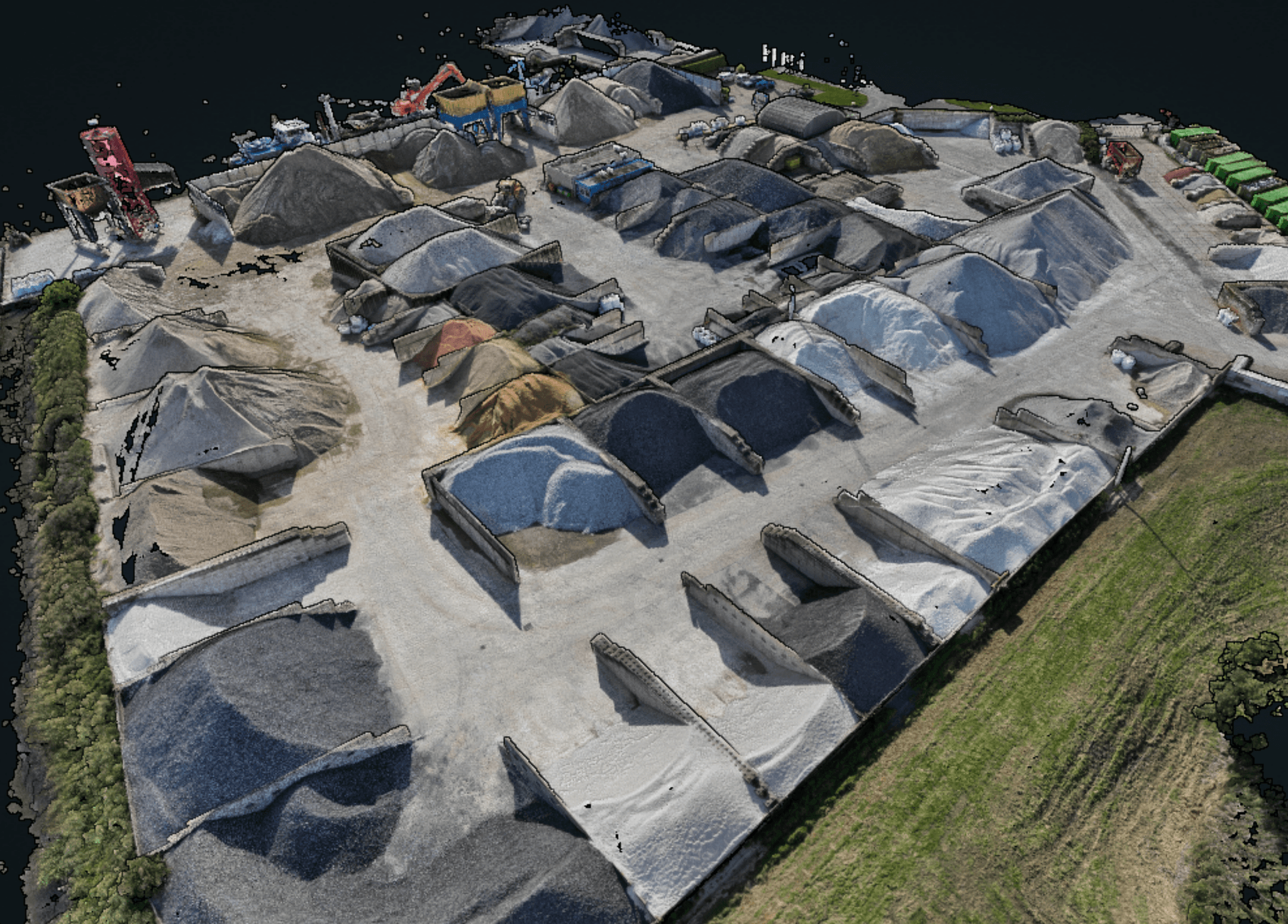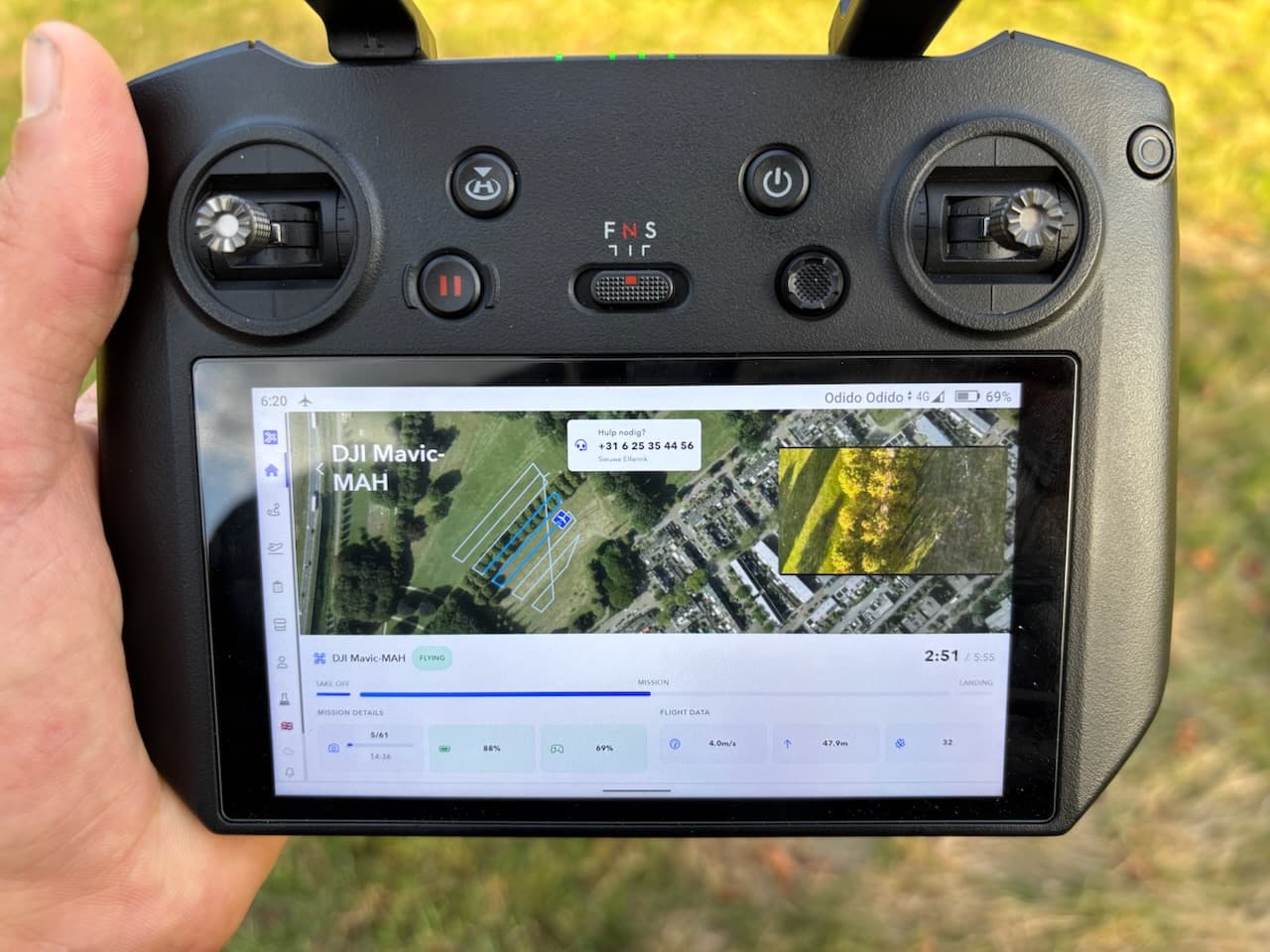From sand dunes to digital twins: how AI makes MRR Drones smarter
What are the most important tips for AI startups? We asked entrepreneur Sieuwe Elferink, founder of MRR Drones.
Published on September 26, 2025

As editor-in-chief, Aafke oversees all content and events but loves writing herself. She makes complex topics accessible and tells the stories behind technology.
Drones have been promising for industry and construction for years, but only recently do they seemed to be truly delivering on that promise. Multi Rotor Research (MRR) Drones, a young startup based in Eindhoven, is working toward a future in which drones can analyze and report independently. The company sees artificial intelligence as the key to this.
In the run-up to the AI Pitch Competition, where nine startups will present their ideas on November 13, we asked Sieuwe Elferink, founder and CEO of Multi Rotor Research, how AI is already changing his company today and what role he sees the technology playing in five years' time.
About the AI Pitch Competition
On November 13, eight selected AI startups will pitch their most innovative solutions. The Brabant initiative offers them a platform to present their ideas, connect with market leaders, and accelerate their growth. Find more info here.
From homemade drones to smart software
The story of MRR begins with an experiment by founder Elferink. He had a homemade quadcopter fly autonomously using end-to-end AI, a technique in which an algorithm learns all the necessary steps at once. That insight—that the same approach could also be applied to drones—led to the founding of MRR. Together with other students from Fontys and Eindhoven University of Technology, Elferink developed the first steps towards a drone that can perform industrial tasks without a human pilot.
A lot has changed since then. “Three years ago, we built our own drones,” says Elferink. “It was great fun, but from a business perspective, it made more sense to purchase existing drones and focus entirely on the software.” That turned out to be a strategic move: six months after Elferink and his partner Patrick Ijntema made this decision, they launched a product on the market.


The startup now focuses on volume measurements in the construction and raw materials sector, such as sand piles or recycled concrete. It is crucial for companies to know exactly how much material is available, but until recently, these quantities were often determined using rough, manual estimates. Where other parties use a drone pilot to perform such measurements, MRR distinguishes itself with drones that perform this process fully automatically. This creates accurate 3D models of sites, which are always available when the customer needs them — at lower costs and without dependence on external pilots.
Elferink: “Our measurements are up to 98 percent accurate, while manual estimates can often deviate by as much as 20 percent. With our drone, you can create a complete digital twin of the terrain within an hour. That's faster, safer, and considerably more accurate than manual measurement.”
Five years ahead: from measuring to understanding
Although hardware remains important, the added value of MRR now lies in software—and specifically in AI. “AI already plays a major role in how we work,” he says. “Not only in the autonomy of the drone itself, but also in our development process. We utilize AI to write software, which significantly accelerates our workflow. One of our developers now does the work that would normally be done by two people.”
Over the next five years, MRR expects AI to make the transition from measuring to understanding. “We want our drones to not only collect data, but also perform analyses independently,” says Elferink. Think of detecting litter in parks based on image recognition. Or inspecting structures for cracks or rust, so that maintenance can be scheduled early. In short, drones are fully-fledged inspectors who not only record but also advise.
Legislation as a brake, AI as an accelerator
Not everything happens automatically. MRR's biggest challenge at the moment lies in regulation. “In Europe, the rules for drones are extremely strict. No-fly zones, in particular, impose numerous restrictions. In the US or China, there is more freedom, which means innovation happens faster.” At the same time, he sees AI as a huge accelerator. “We can create prototypes faster, test new applications, and deploy our software in a scalable way. That keeps us competitive, even when legislation restricts us.”
Being an entrepreneur means letting go
Since founding MRR, Elferink has had to let go of several things. For example, he no longer spends his time programming—which he enjoys most—but now focuses on the operational side of the business. He has also abandoned his initial plan to build a drone entirely from scratch.
“Our first idea was to develop a drone that could inspect farmland,” he says. "But we realized that farmers can obtain satellite images for a fraction of the price. They are less accurate, but good enough. That's another example of an idea we let go. It's crucial to examine what the market truly needs and base your decisions on that. You can't continue building your own drone just because it's fun; you also have to be realistic."
Lesson for other startups
This is also his tip for new AI startups: don't spend too long building in isolation. “In the beginning, we spent too much time on our own drone, even though the market wasn't interested in it. Looking back, it feels like wasted time. So: talk to potential customers, test your product, and adapt it.”
This market focus, combined with the power of AI, is expected to drive MRR growth further in the coming years. With its first customers in the construction and raw materials sector, the company wants to expand rapidly and develop new applications.
By 2030, MRR aims to supply not only drones, but complete, AI-driven services. "Already, customers are no longer buying hardware or software, but a solution: an autonomous drone that flies, measures, analyzes, and reports at the touch of a button. “AI will help us convert the enormous amount of data we collect into direct insights. That makes our drones not only smarter, but also more valuable to customers. In addition, we want to use AI to realize even more applications in various sectors,” says Elferink. “Companies can always contact us to discuss what our concept can mean for them.”
Sponsored
This story is the result of a collaboration between AI Pitch Competition and our editorial team. IO+ is an independent journalism platform that carefully chooses its partners and only cooperates with companies and institutions that share our mission: spreading the story of innovation. This way we can offer our readers valuable stories that are created according to journalistic guidelines.
Want to know more about how IO+ works with other companies? Click here
